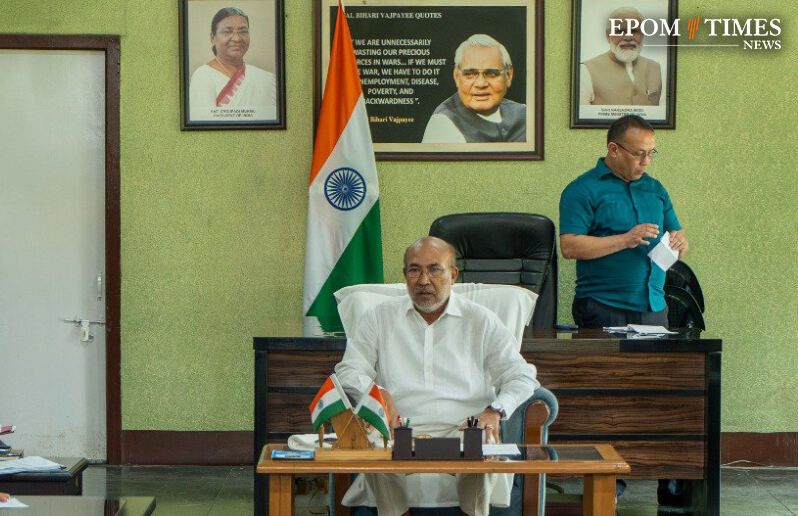The Manipur government, led by Chief Minister N Biren Singh, has ramped up efforts to persuade the Central Government to expel certain insurgent groups from the Suspension of Operations (SoO) agreement. This move follows concerns that these groups are violating the terms of the agreement, thereby threatening the state’s stability and security. The Chief Minister’s push comes amidst ongoing tensions in Manipur, where the presence and activities of these groups have raised significant concerns among the local population and authorities alike.
The Suspension of Operations (SoO) agreement was originally established as a ceasefire arrangement between the Indian government, the Manipur state government, and several insurgent groups based in the hill areas of Manipur. The agreement was intended to facilitate peace talks and reduce violence in the region by ensuring that insurgent groups refrained from engaging in violent activities while discussions were ongoing.
However, recent developments have led the Manipur government to question the effectiveness and sincerity of these agreements. According to state officials, certain groups have been involved in activities that undermine the spirit of the SoO agreement, such as organizing rallies and other public demonstrations that have the potential to destabilize the region. These activities, particularly in districts like Churachandpur, Kangpokpi, and Tengnoupal, have been cited as violations of the agreement, prompting the state government to consider withdrawing from these arrangements.
In a significant move, Chief Minister N Biren Singh met with Union Home Minister Amit Shah to discuss the situation and present the state government’s case for the withdrawal of the SoO agreement with specific insurgent groups. The Chief Minister emphasized that the state government is committed to protecting Manipur’s territorial integrity and will not tolerate actions that compromise the state’s security. The state cabinet has already resolved to withdraw from the SoO agreement with three prominent hill-based insurgent groups: the Kuki National Army (KNA), the Zomi Revolutionary Army (ZRA), and the Kuki Revolutionary Army (KRA).
The Chief Minister also highlighted the state government’s efforts to address illegal activities in the region, such as poppy cultivation, which is believed to be linked to the insurgent groups. The state’s war against drugs has been a critical part of its strategy to restore law and order in the region, and the government is keen to ensure that the SoO agreement does not hinder these efforts.
The Union Government, while reviewing the state government’s concerns, has shown a positive response to the proposed withdrawal from the SoO agreement. Discussions between state and central officials are ongoing, with the Centre expected to take a final decision on the matter soon. The withdrawal from the SoO agreement is seen as a crucial step in the state government’s broader strategy to restore peace and stability in Manipur, especially in light of the recent unrest and the potential for further escalation if the insurgent groups are not adequately managed.
The Manipur government’s decision to push for the withdrawal of the Suspension of Operations agreement with specific insurgent groups marks a significant shift in its approach to handling the ongoing conflict in the state. By addressing the alleged violations of the agreement and seeking the Centre’s support in this endeavor, Chief Minister N Biren Singh aims to strengthen the state’s security and maintain its territorial integrity. As the situation unfolds, the state and central governments will need to work closely to ensure that any actions taken contribute to long-term peace and stability in the region.



